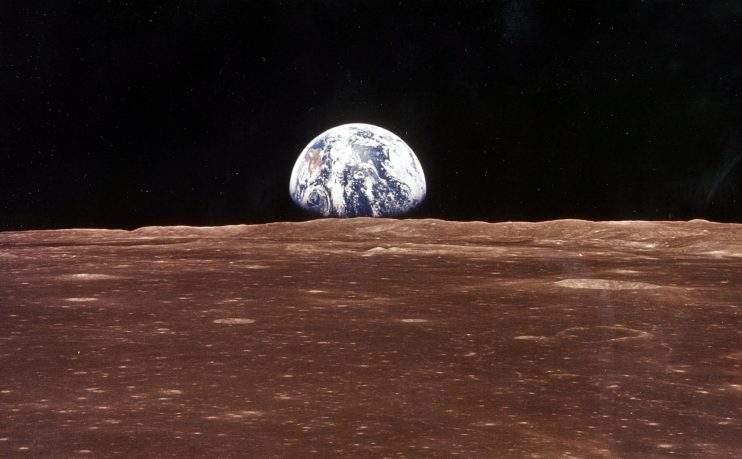Be eco-rational: The world’s environmental problems are too serious for petty political dogma

On 14 February 1990, a photograph was taken by the Voyager 1 spacecraft from the fringes of the solar system.
As it sped further away, engineers spun it around to capture an image of the planet Earth, suspended in space roughly four billion miles away. Taking up only 0.12 of a pixel in the image, this photograph showed humankind something they had never seen before: pale blue dot, surrounded only by space.
In response to this image, the astrophysicist Carl Sagan wrote: “The Earth is the only world known so far to harbor life. There is nowhere else, at least in the near future, to which our species could migrate. Visit, yes. Settle, not yet. Like it or not, for the moment the Earth is where we make our stand.”
Sagan passed away in 1996, but his words still ring true today.
We live on an increasingly crowded planet, millions still live in extreme poverty, and we have known about climate change for decades yet greenhouse gases continue to rise. This is not because there are no solutions, but because those solutions have become muddied by all sides — politicians, journalists, activists. People of all backgrounds have ignored expert advice and scientific evidence in favour of their gut feelings and ideologies.
Few of us are committed to having an evidence-based worldview — it’s truly hard to do. We have to remain open-minded, but also sceptical of what we read and hear. Even when presented with the facts, changing our minds isn’t easy to do. Tribalism is natural to humankind: we evolved as social creatures who for much of human history needed to stick to small groups where peer approval might have once meant the difference between life or death.
But what if, in order to solve climate change, poverty and other issues, we have to adjust our viewpoints and go against our tribe? What if we have to change our political position, or campaign for something that we previously campaigned against?
Some of us have done just this. Others fear losing their tribe, which is part of their identity. People on both sides of the political spectrum — right and left — are stuck in polarised arenas that mean ascribing to the same views.
The greatest challenges the world faces can be largely addressed with existing solutions, but many technologies we could be using right now are not deployed due to public fear and misunderstanding — technologies like genetically modified organisms, lab-grown food, artificial intelligence, and nuclear power.
Unless we are open to having our beliefs challenged and changed by data, we risk making the problems worse. For example, agro-ecology has long been pushed as sustainable but research has shown that it is likely keeping African farmers in poverty, while wind farms are displacing Indigneous people from their lands.
We need to accept that technologies we might find irrationally scary can have a huge positive impact, while renewable energy sources take their own toll on local environments and people, and are therefore not automatically the “environmentally-friendly” solution that people argue them to be.
We are calling this approach “eco-rational”.
Healthy debate and reasoned argument is possible — but it starts with respecting a person’s ability to change their mind. Doing so shouldn’t make someone an outcast. Indeed, it should be celebrated, for this is the essence of the scientific method at its core: that we modify our beliefs when presented with new evidence.
Can we bring reasonable, rational discourse to debates that have become extremely polarised and entrenched in group-think? If there isn’t currently space for evidence-based environmentalism to find friendship, support and solace, then let’s create one by using the hashtag #ecorational.
To return to Carl Sagan: “Our planet is a lonely speck in the great enveloping cosmic dark. In our obscurity, in all this vastness, there is no hint that help will come from elsewhere to save us from ourselves.”
For the sake of a better future for our planet, we have a duty to reconsider our opinions and embrace the best solutions we have available. Fellow activists and artists, musicians and engineers, mothers and fathers, inventors and explorers, politicians and scientists, citizens of all backgrounds — will you join us?
Main image credit: Getty